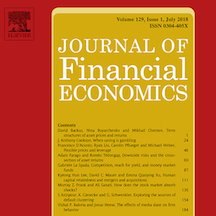 Researchers from the University of Notre Dame in Indiana, Duke University in North Carolina, Drexel University in Philadelphia, and the University of Washington conducted a study that found that historically Black colleges and universities pay higher fees to issue tax-exempt bonds than non-HBCUs.
Researchers from the University of Notre Dame in Indiana, Duke University in North Carolina, Drexel University in Philadelphia, and the University of Washington conducted a study that found that historically Black colleges and universities pay higher fees to issue tax-exempt bonds than non-HBCUs.
The researchers collected information from 4,145 tax-exempt municipal bond issues from 1988-2010, which totaled about $150 billion. Out of the 965 institutions involved in the sample, 102 were HBCUs. The authors determined that HBCU bond issuance costs were about 20 percent higher than those of non-HBCUs, apparently because the bond underwriters found it more difficult to find buyers for the HBCU bonds. The researchers concluded that this was due to racial discrimination. They found that in the Deep South states of Louisiana, Alabama, and Mississippi, where the authors say that “racial animus remains the most severe,” HBCUs were paying underwriter fees three times higher than HBCUs in other states.
The authors also found that the differences in fee structures were unrelated to the quality of the debt. HBCUs with good credit ratings still paid higher fees than other institutions with similar credit ratings.
The full study, “What’s in a (School) Name? Racial Discrimination in Higher Education Bond Markets,” was published on the website of the Journal of Financial Economics. It may be accessed here.

